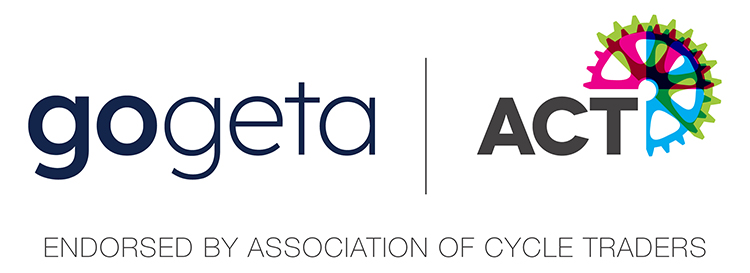ACT endorses gogeta as industry Cycle to Work Scheme partner
Posted on in Cycles News

Some background
In the 1999 finance act the UK Government delivered two tax incentives, the Home Computer Initiative (HCI) aimed at improving digital skills and workforce capability and the Cycle to Work Scheme (Cycle to Work) to enable more people to access cycling as a sustainable and healthy mode of travel.
Due to the nature and dynamism of the IT sector the HCI scheme took off at a pace, whilst the cycle sector took some years to understand how to benefit from the tax incentive gift. Halfords were the early adopter initiating the booost brand before discarding it to lead the scheme with their Cycle2Work branded initiative.
The ACT engaged early in the process with several leading bike brands in adopting the booost brand in partnership with an HCI provider to deliver a low commission option to the IBD, whilst Avon Valley Cyclery launched a scheme under the Cyclescheme brand.
In April 2006 HMRC announced the removal of HCI without any consultation as computers had become more affordable and relatively well used. This overnight announcement led to the failure of numerous scheme providers including the booost partner. ACT did return to the Cycle to Work market a few years later with a new partner and the WorkRiders programme, an innovative development that improved employer/ee processes whilst slashing IBD commissions, but it could not garner sufficient industry support and had to be mothballed.
The cycle industry was left with a growing number of providers dominated by Halfords and Cyclescheme, who, it is estimated account for as much as 90% of Cycle to Work sales, all of whom are primarily funded by the cycle sector paying commissions of as much as 15% on sales.
Where are we today?
A Google search of ‘Cycle to Work’ directs employers/ees to a wide range of scheme providers, with very little differentiation... The IBD’s funding and critical role in product supply and set up has been lost in a process that employers find cumbersome and less friendly than similar employee benefits schemes, whilst employees experience difficulties in accessing the product they want and a challenging purchase process.
Scheme providers have benefited from accessing leading bicycle brands, whilst levying huge commissions on IBDs, which are far greater than other costs of sale such as credit cards or retail finance. As a result the scheme has helped providers to become highly profitable.
Looking ahead
The ACT believes that the Cycle to Work scheme has never been more relevant. The scheme is a fantastic way for the industry to attract and retain customers, whilst supporting wider efforts to improve health, reduce road congestion and improve air quality.
But the Cycle to Work scheme needs to be reimagined to satisfy employers, employees and key stakeholders in the supply chain and most importantly IBDs who have kept the scheme alive for 24 years.
So Imagine a Cycle to Work scheme where:
- The costs of delivery were shared by all parties in the supply chain, not all borne by the IBD.
- Retailers actively promoted the scheme to their customers as the best solution to buy.
- Cycle brands fully engaged, investing in the promotion of the scheme and their retail customers.
- The significant investment in Cycle to Work was retained within the cycle industry.
- The scheme became a true force for good and many, many more people began cycling.
ACT believes that this is what gogeta will deliver for employees, employers and the bike retail industry.
Click here to find out more and register with gogeta here.
ACT members will benefit from a long term discounted commission of just 3%, make sure to sign up to ACT here for the best gogeta rates and many other benefits.
Contact hello@gogeta.cc if you want to know more.
